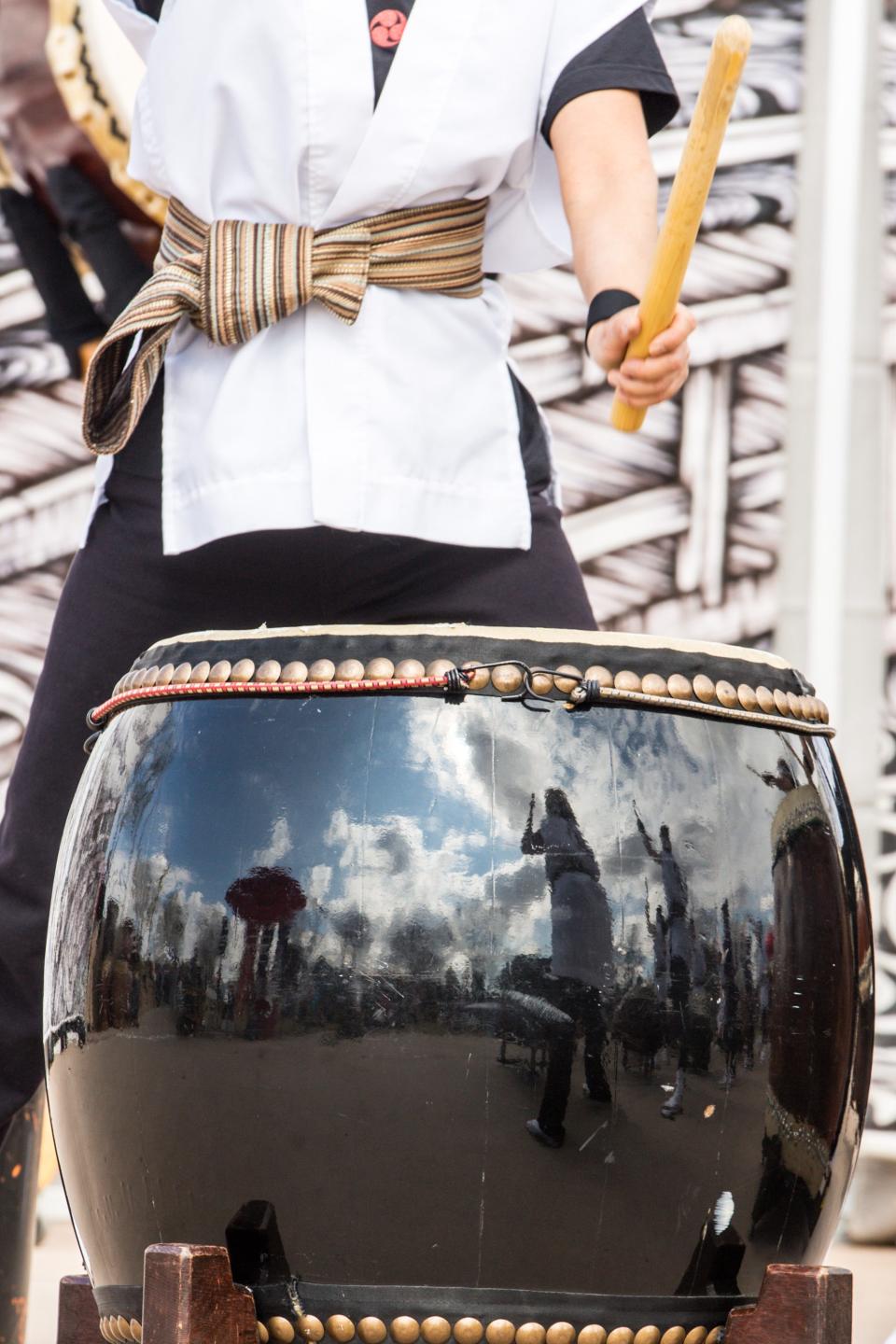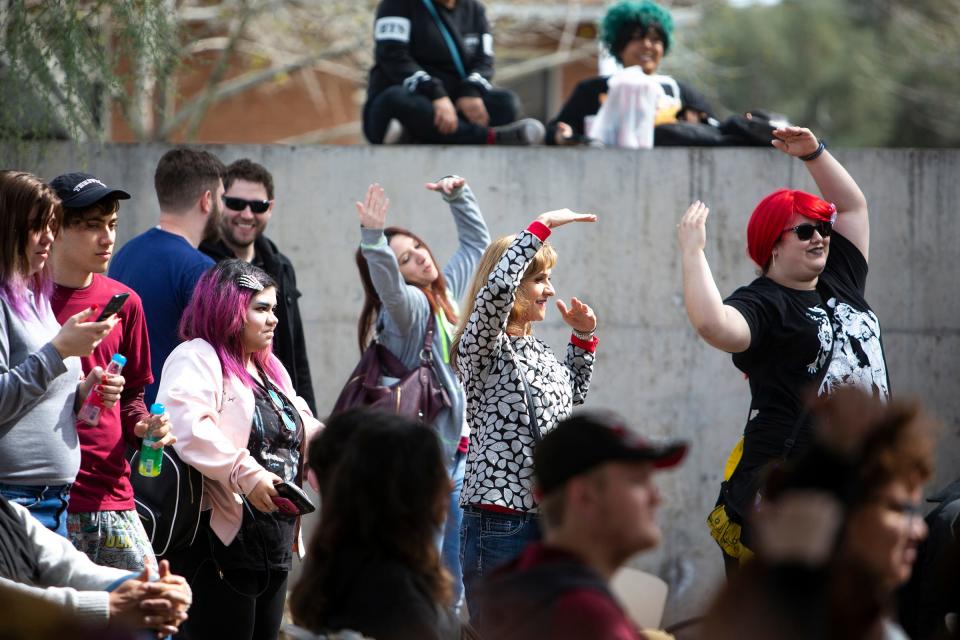Arizonans' love of Japanese culture has helped a festival thrive for 37 years. Here's how
The first day of the Arizona Matsuri on Feb. 22, 2020, was a rainy and muddy occasion in uptown Phoenix.
And still tens of thousands of people showed up at Steele Indian School Park that weekend to celebrate Japanese culture by watching taiko (drum) performances, cosplaying as their favorite anime characters and eating curry rice from local vendors.
After 35 years at Heritage and Science Park in downtown Phoenix, this was the first time the festival had relocated, and it was the largest to date.
“Even when it was pouring rain, it was all muddy, and there (were) still people everywhere,” said Kelly Moeur, president of the Arizona Matsuri steering committee.

Moeur has been involved with the event — matsuri means festival in Japanese — since it was born out of an Arizona State University project more than three decades ago. The first matsuri, which took place Feb. 2-3, 1985, kicked off the semester-long project.
In 2021, the committee decided for the first time not to host an in-person event. Instead, it organized a two-day virtual festival with prerecorded speeches, performances and cooking videos. Despite hopes of returning in person this year, the committee decided in January that it would be safer to go virtual again for the 37th annual event amid COVID-19 concerns.
For subscribers: COVID-19, anti-Asian hate cancel cultural festivals for a second year
The first Arizona Matsuri
On Jan. 31, 1985, The Arizona Republic published an article titled “ASU festival lifts the mask on Japanese life,” which reported that “The festival, or matsuri, is the first public event of a three-month Arizona State University project called Behind the Mask."
From February through March, “Behind the Mask: A Cultural Exploration of Japan” presented lectures, performances and film screenings across metro Phoenix. The ASU College of Fine Arts and the Center for Asian Studies sponsored the event.
The inaugural matsuri explored “all aspects of Japanese culture,” according to the article, and featured a kimono fashion show, tea ceremony and Japanese cooking demonstrations.
Arizona Matsuri is now a nonprofit organization run by volunteers “who wish to introduce and educate all who are reached in the essence of traditional and modern Japanese culture,” according to Arizona Matsuri’s website.
Biggest events in metro Phoenix: 2022 brings Country Thunder, Luke Days and more
How interest in Japanese culture has changed over three decades
The Arizona Matsuri has come a long way from its roots.
Moeur, who has served as honorary consul of Japan in Phoenix since 2004 and was the principal of Arizona Gakuen School — a Japanese supplementary school in Tempe — from 1991 to 2018, noted that people’s motivations for being interested in Japanese culture have changed since the event’s inception.
“If you look at people who study Japanese — we used to kind of trace this — most of them were business oriented,” Moeur said. “(Students) would say that they want to work for an international company.”
After Japan experienced an economic slowdown in the ‘90s, students’ interest in learning about Japan shifted.
“We discovered it was more culturally driven. And obviously, anime was sort of the key,” Moeur said. “I think if you talk to most people studying Japanese now, that is the reason. It’s not so much business.”
Lyndsey Hoffman, a co-chair of the steering committee, has seen her students’ interest in Japanese pop culture grow, too.

“Asian mass media — if you look at K-pop as well — has become a much more mainstream thing,” Hoffman said. “I know back when I was in high school, it wasn't cool to like anime.
“Now, as a high school teacher, I see kids of all different types of social groups that will participate in a discussion about anime,” she said.
The future of the Arizona Matsuri
Despite some fatigue around virtual events, the 2021 Arizona Matsuri managed to pull in 10,000 viewers, organizers said. This year’s celebration will take place on the Arizona Matsuri website, https://www.azmatsuri.org, Facebook page and YouTube channel on Saturday-Sunday, Feb. 26-27.
In keeping with past events, there will still be a raffle, with prizes ranging from gift cards from local businesses to 50,000 Japan Airlines miles, which can be used toward a round trip ticket to Japan.
As for hosting an in-person festival in 2023, organizers will stay in touch with Phoenix’s parks and recreation department to see whether a return to Steele Indian School Park might be in the cards next February.
Though the format of the festival has changed, its mission remains the same: “Our driving force really is to keep it authentic and keep it Japanese,” Hoffman said.
Reach the reporter at kimi.robinson@gannett.com. Follow her on Twitter @kimirobin and Instagram @ReporterKiMi.
Support local journalism. Subscribe to azcentral.com today.
This article originally appeared on Arizona Republic: Arizona Matsuri Japanese festival: History of the Phoenix event

